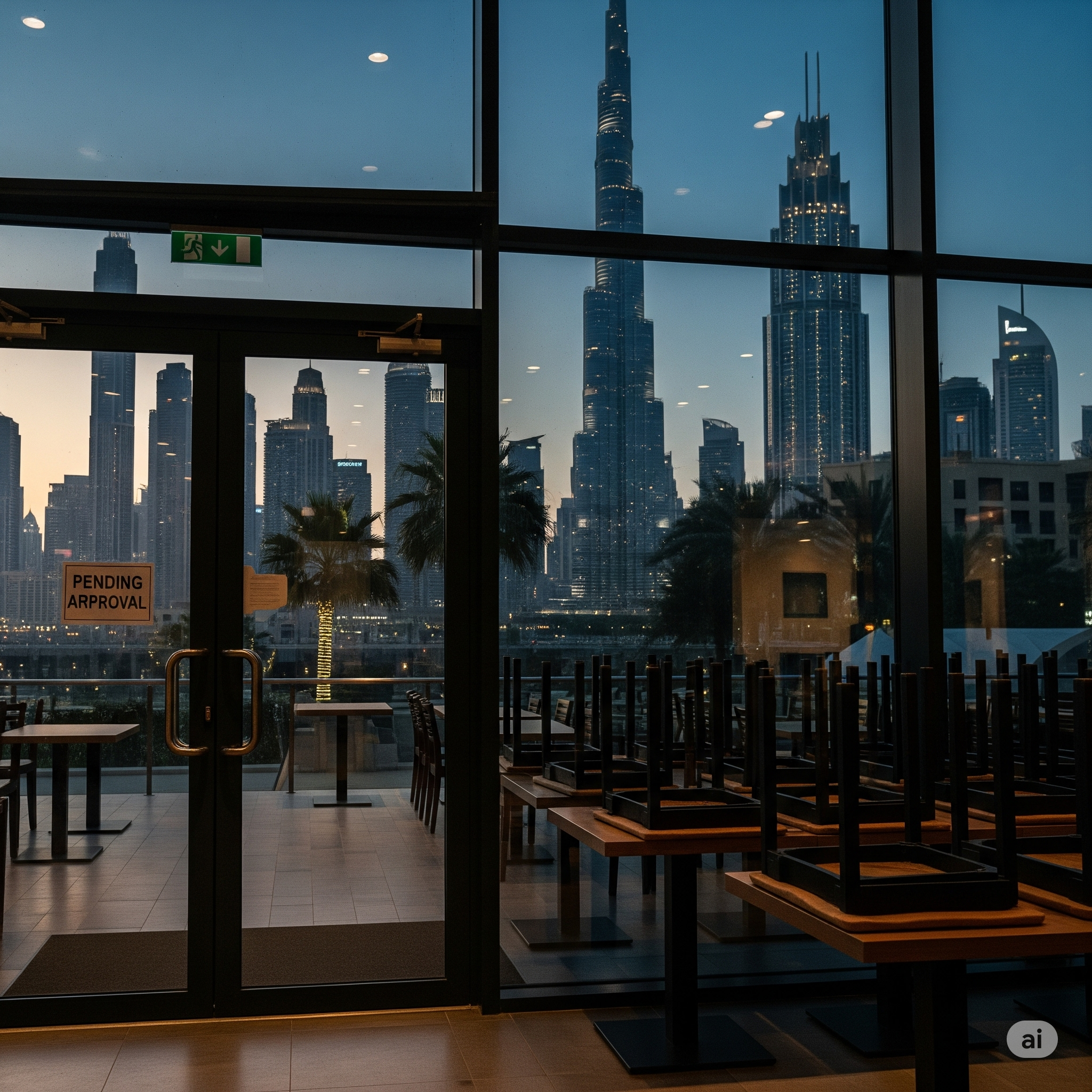A fire alarm system is a safety mechanism designed to detect fires… as mandated by Civil Defense approvals under UAE Fire Code Chapter 5
of Dubai and Abu Dhabi continue to rise with iconic structures like Burj Khalifa and Burj Al Arab, the risk of fire incidents in high-rise buildings has become more serious. That’s why smart fire protection systems are no longer optional—they are a legal and practical necessity.
Whether you’re a property owner, facility manager, or developer, this article will guide you through the critical role of fire alarm systems in the UAE, the types available, and how to select a Dubai Civil Defense-certified system that minimizes risks, prevents costly damages, and ensures full regulatory compliance.
Table of Contents
Why Are Fire Alarm Systems Crucial for Buildings in the UAE?
Fire alarm systems are crucial for buildings in the UAE because they offer life-saving early detection, enable safe evacuation, and ensure compliance with strict Civil Defense regulations.
By detecting fires in their earliest stages, these systems give occupants the critical seconds needed to evacuate and allow emergency teams to respond faster—helping to save lives and minimize property damage.
In fact, UAE law mandates approved fire alarm systems in all facilities, with fines reaching over AED 50,000 for non-compliance.
Moreover, certified smart systems—especially those approved by the UAE Civil Defense or global manufacturers like Honeywell and Siemens—not only boost safety but also reduce maintenance and insurance costs by up to 20%.
Without a reliable and approved alarm system like hassantuk dubai, buildings face increased fire risk and long-term losses. That’s why installing such a system is not just a legal duty—it’s a smart investment in your building’s future.
Let’s now explore the key reasons why fire alarm systems are essential for buildings across the UAE.
1- How Do Fire Alarm Systems Assist in Early Fire Detection?
Fire detection and fire alarm systems support early fire detection by activating automatically within seconds of a threat – giving occupants crucial evacuation time and protecting property from rapid fire spread.
These systems rely on advanced detectors—such as photoelectric and ionization sensors—that are designed to identify smoke particles or electrical disruptions caused by fire. Upon detection, the system triggers a series of automatic responses, including:
- Activating loud audible alarms
- Redirecting elevators away from danger zones
- Shutting off ventilation systems to block smoke
- Lighting up emergency evacuation routes
✅ To ensure maximum reliability, always choose sensors certified by the UAE Civil Defense, and test them monthly to maintain performance.
🔍 Each detector type serves a specific fire scenario:
Detector Type | Sensing Method | Recommended Application |
Photoelectric | Detects light scattering caused by smoke particles | Slow-burning fires (furniture, paper) |
Ionization | Monitors electrical current changes from charged particles | Fast-flaming fires (flammable liquids) |
Heat | Triggers at sudden temperature rise (+58°C threshold) | Kitchens - Boiler rooms |
Flame | Identifies UV/IR radiation | High-risk areas (fuel stations) |
2- How Do Fire Alarm Systems Protect Lives and Property?
fire alarm systems dubai protect lives and property by triggering immediate actions the moment a threat is detected.
When a certified sensor identifies signs of fire, the system activates high-decibel alarms—up to 120 dB—and sends an instant signal to the monitoring center and UAE Civil Defense. This early warning provides occupants with crucial time to evacuate and take necessary action.
In parallel, automated fire suppression systems—such as water sprinklers or gas extinguishing systems—contain the flames at the source, while electrical circuits in the affected zone are automatically shut off to prevent further ignition or material loss.
✅ To ensure a fast and coordinated emergency response, always connect your fire alarm system to an authorized monitoring platform such as Hassantuk, approved by the UAE Civil Defense.
💡 Case in Point: On December 31, 2015, a fire broke out on the 20th floor of a hotel in Downtown Dubai. Thanks to the fire alarm systems residential, the fire was detected early. Emergency teams arrived within 6 minutes, and the building was evacuated successfully without any major injuries.
3- Why Is Compliance with the UAE Fire Alarm Code Mandatory?
Compliance with the UAE Fire Alarm Code is mandatory because it ensures early fire detection and timely response—both critical for protecting lives and property.
The UAE Civil Defense requires all fire alarm systems to meet the UAE Fire and Life Safety Code (UFC) as well as international standards set by the National Fire Protection Association (NFPA). These regulations define essential fire safety measures in buildings, including alarm systems, emergency lighting, and evacuation procedures.
Failure to comply with these codes can lead to serious consequences:
- Fines exceeding AED 50,000 for building owners or contractors
- Potential closure of the facility until compliance is achieved
✅ Ensuring full code compliance not only reduces legal risks but also demonstrates a building’s commitment to safety, accountability, and regulatory standards in the UAE.
4- How Do Fire Alarm Systems Support Smart Building Technologies in the UAE?
fire alarm systems in Dubai play a key role in supporting smart building technologies across the UAE by enabling immediate and coordinated responses when a fire is detected.
These systems integrate seamlessly with Building Management Systems (BMS) to automate critical actions—such as unlocking evacuation routes and isolating affected zones electrically—ensuring safety without delay.
Furthermore, modern fire alarm systems connect with Internet of Things (IoT) platforms, allowing remote monitoring and predictive maintenance based on real-time performance data. This digital connectivity enhances system reliability and enables faster interventions before faults escalate.
Studies show that smart-integrated fire alarm systems reduce emergency response time by up to 40%, and cut fire-related material losses by more than 60% compared to traditional setups.
5- How do fire alarm systems save costs and help you avoid fines?
Fire alarm systems reduce long-term costs by enabling early fire detection, which minimizes damage, prevents safety violations, and lowers insurance premiums.
In the UAE, non-compliance with fire safety standards can result in heavy fines, while certified alarm systems help avoid such penalties. Moreover, insurers like AXA Gulf and ADNIC often offer premium discounts to properties equipped with approved fire detection systems—making compliance a financially smart decision.
Real Case – November 2022: A fire broke out at a recycling warehouse in Dubai’s Al Quoz Industrial Area. Thanks to early warning systems, Civil Defense units arrived within 4 minutes, no injuries were reported, and the damage was quickly contained—preventing major financial loss.
What Are the Approved Types of Fire Alarm Systems in the UAE?
There are four main types of fire alarm systems approved in the UAE: conventional, addressable, wireless, and integrated safety systems. Each type serves a specific use case based on building risk level and infrastructure.
- Conventional Systems These systems divide the building into zones, with smoke detectors, heat sensors, and manual alarms wired in closed loops. They are cost-effective and suitable for low-risk buildings such as small warehouses and residential homes.
- Addressable Systems This smart system—used in platforms like Hassantuk—assigns a unique address to each device, allowing precise identification of the fire’s location. It is ideal for high-rise buildings, hospitals, and commercial centers under 500 m².
- Wireless Systems Instead of using traditional wiring, these systems rely on wireless signals sent from sensors to the control panel when a fire is detected. They are best suited for older buildings where rewiring is impractical.
- Integrated Safety Systems These intelligent systems combine multiple protection components (detection, suppression, evacuation) under one automated platform. They make real-time decisions based on pre-programmed fire scenarios, and are commonly installed in skyscrapers like Burj Khalifa and large commercial complexes.
Upgrade to a fully compliant system today with our Fire Systems Services and Solutions – covering design, installation, and annual maintenance to meet all UAE Civil Defense requirements.
5 Tips for Choosing the Best Fire Alarm System for Your Building in the UAE
Choosing the right fire alarm systems for your facility in the UAE requires more than just budget considerations—it demands compliance, risk evaluation, and technical accuracy. Below are five golden tips to guide your decision:
l Identify Your Building Type and Risk Level Start by evaluating your facility’s size and function (residential, warehouse, fuel station, etc.). Each category comes with a specific fire risk level and system recommendation.
Building Type | Risk Level | Recommended Detector Type | Suitable System |
Residential buildings (≤ 500 m²) | Low | Smoke & Heat Detectors | Conventional System |
High-rises, commercial complexes (≥ 500 m²) | High | Smoke & Heat Detectors | Addressable System |
Industrial facilities | High | Flame Detectors | Explosion-Resistant System |
Fuel stations | High | Flame Detectors | Explosion-Resistant System |
l Ensure Compliance with UAE Civil Defense Standards Choose systems that meet the regulations of the UAE Civil Defense, such as those from Honeywell or Tyco. These devices are rigorously tested for dust resistance, humidity tolerance, and heat endurance—crucial for the UAE climate. Non-compliance may lead to fines exceeding AED 50,000.
l Install Devices Strategically Place detectors on ceilings and in corridors, with spacing of 9 meters in open areas. Use heat detectors in kitchens and smoke detectors in other areas to ensure accurate and fast detection.
l Schedule Regular Maintenance Perform monthly self-checks to verify functionality. Every six months, have a professional team clean the sensors, test system performance, and log all inspections in the official fire safety record—a legal requirement in the UAE.
l Work with Certified Installation Providers Rely on trusted fire system specialists for proper setup, legal compliance, and long-term system reliability.
Summary:
Installing a fire alarm system is not just a safety measure—it’s a vital investment in protecting lives and property. To ensure full legal compliance and long-term performance, trust DAEM Contracting Company to handle your fire alarm needs professionally.
✅ Full legal approvals and documentation
✅ Certified installation and maintenance by trained technicians
✅ Regular system upkeep, including monthly checks and annual calibration
→Need AMC guidance? Download Dubai’s Fire Protection AMC Checklist
Client Questions, Expert Answers
1.What is the NFPA and how does it relate to fire alarm systems in the UAE?
The National Fire Protection Association (NFPA) is a leading U.S.-based nonprofit organization recognized globally for its fire safety standards. Its codes and guidelines for fire alarm systems serve as a key reference in the UAE, forming the foundation of the UAE Fire Code (UFC) and local regulations for system design, installation, and maintenance.
2.How often should fire alarm systems be inspected and tested in the UAE?
In the UAE, fire alarm systems require monthly self-checks by the building operator to verify basic functionality. Additionally, a professional team must conduct comprehensive inspections and tests every six months. This includes cleaning sensors, testing system performance, and logging all inspections in the official fire safety record, as mandated by the UAE Civil Defense.
3.What is the difference between a conventional and an addressable fire alarm system؟
The main difference between a conventional and an addressable fire alarm system lies in how accurately they identify the location of a fire.
A conventional system only indicates the general zone where the alarm was triggered, while an addressable system pinpoints the exact location by assigning a unique address to each device.
4.Can modern fire systems prevent high-rise fires like Dubai's 2015 hotel incident?
Absolutely. Projects like SAAS Business Bay Tower demonstrate how addressable systems with real-time monitoring can identify threats before ignition, achieving 100% fire-free operation since 2022.

M. Hussam Almahmoud
Business Owner | DAEM CONTRACTING LLC Dubai
M. Hussam Almahmoud Graduated From Aleppo University BSC in Mechanical Engineering, CEO and partner In White Eagkes Hen trd ( established in 2005 , White Eagle Transport Est 2008 , City care Fire Est 2010 , Daem Contracting Est 2014 , Abraj Wa Mabani cont Est 2016 , White eagles gen trd LTD Est 2021 in Manchester UK , Partner in ICE Elektronik Dis Ticarat limited Sirketi Istanbul turkey




Comments are closed